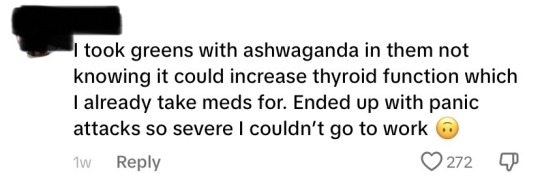#remedie
Explore tagged Tumblr posts
Text
alex hirsch was really just so pissed that no one saw his epic old man yaoi that he went and wrote a whole new book and made a whole website specifically to show meticulous evidence that this weird old man fucked a triangle.
he really said what were ford and bill really doing in that pocket dimension they shared, hm? did you ever think of that? oh - you think it was just chess? hm. interesting. i dont.
the ultimate rare pair shipper. i have never seen a creator do this before. absolutely fascinating at every angle.
#and he was so fucking real for that#if i created the best old man yaoi ever and people shipped fucking BILLDIP instead??????#i would devote years of my life to remedying that as fast as possible#yall dont even understand i would be irate#imagine someone shipping ur 12yo self insert with ur uncle's weird ex from another dimension#toxic yaoi fr fr#gravity falls#billford#bill cipher#ford pines#dipper pines#alex hirsch#after the owl house cancellation too ik disneys begging him for a s3#and hes holding it over their heads while curating a gravity falls mania that hasnt been seen since the tumblr dark days#my posts#text post
9K notes
·
View notes
Text



rotating him in my mind 24/7
#astarion#bg3 astarion#baldur's gate 3#bg3#bg3 fanart#as you all can see i am still bewitched#i am sorry for those who are tired of seeing him#but i am unwell and the remedy is sketching him at least once every few days
13K notes
·
View notes
Text

After the Quest
prints
#knight#knightcore#fantasy illustration#urban fantasy#artists on tumblr#fantasy art#gif#I realized I never posted the gif version of my blog header so I’m remedying that now#thefourofdiamondsart#neon knights#since some have been tagging this midst: this is an original character! I’d never heard of midst until tumblrinas started tagging it thusly
11K notes
·
View notes
Text

Celebrate Pride with Tor Publishing Group!

The Water Outlaws by S. L. Huang
Mountain outlaws on the margins of society, the Bandits of Liangshan proclaim a belief in justice—for women, for the downtrodden, for progressive thinkers a corrupt Empire would imprison or destroy. They’re also murderers, thieves, smugglers, and cutthroats. Together, they could bring down an empire.
Now available in paperback!
Somewhere Beyond the Sea by TJ Klune
The long-awaited sequel to The House in the Cerulean Sea is a story of resistance, lovingly told, about the daunting experience of fighting for the life you want to live and doing the work to keep it. Welcome back to Marsyas Island—home to six magical and purportedly dangerous children. This is Arthur’s story.

The West Passage by @jpechacek
When the Guardian of the West Passage dies in her bed, the women of Grey Tower feed her to the crows and go back to their chores. No successor is named, and no hand takes up the fallen blade, so the West Passage—the ancient byways of the beast—goes unguarded. This is a weird and delightful journey across a deliriously medieval landscape where decay thrives in abundance and giant Ladies rule a palace the size of a city.
Blood Debts by Terry J. Benton-Walker
On the thirtieth anniversary of the largest magical massacre in New Orleans history, Clement and Cristina Trudeau mourn their father and care for their sick mother. But their mother isn’t sick, they learn: She’s cursed. Cursed by a member of the same magic council over which she used to preside. Cursed by someone who will come for Clement and Cristina next.
Now available in paperback!

Bury Your Gays by @drchucktingle
After so many years, Misha’s big Oscar moment is here. All he has to do? Kill off the gay characters in his long-running streaming series, “for the algorithm.” Misha refuses, but that’s hardly the end, because monsters from his old horror movie days have begun to step out from the silver screen and stalk him.
The Brides of High Hill by Nghi Vo
The Cleric Chih accompanies a young bride to her wedding to Lord Guo, the aging ruler of a crumbling estate, but amid the elaborate courtesies and extravagant banquets, they realize something haunts the shadowed halls. As the big night nears close, Chih will learn that not all monsters dwell in shadows; some hide in plain sight.

Remedial Magic by Melissa Marr
1) An unassuming librarian falls in love with a powerful witch.
2) Previous librarian discovers she too is a witch…
3) …and that she must attend magical community college to learn how to save her new world from annihilation.
Swordcrossed by @fahye
Part-time con artist / full-time charming menace Luca Piere didn’t expect to get blackmailed into teaching a chronically responsible merchant Matti how to wield a sword. He also didn’t expect to find his charge so inconveniently handsome, or to get so entangled in his tale of intrigue, sabotage, and matrimony.
It’s important to read Swordcrossed because while you’re reading gay fiction, you can also study the blade.
Celebrate Pride with more titles from Tor Publishing Group here!
#remedial magic#melissa marr#swordcrossed#freya marske#the brides of high hill#nghi vo#bury your gays#chuck tingle#the west passage#jared pechacek#Jared Pechaček#blood debts#terry j benton-walker#somewhere beyond the sea#tj klune#the water outlaws#s l huang#lgbtqia+#tbr#gay books#tor books#tordotcom publishing#nightfire books#tor nightfire#bramble#bramble romance#tor teen
4K notes
·
View notes
Text
The most insane lines delivered within Remedy's history of games. (From Alan Wake 2's "Night Springs" DLC)
#“just in case that wasn't clear awoooo”#holy shit#i was crying i love this game#remedy games#alan wake#alan wake 2#night springs spoilers#dlc night springs#night springs#mr. scratch#or. i guess not but he's scratch in my mind
4K notes
·
View notes
Text
DUKE!!!!


trying to get used to drawing duke (i feel like he looks different every time i draw him but this also happens every time i draw like. anyone. so.) i had fun doodling him he's so cutie patootie
#thanks to everyone that talked about their headcanons for duke!!! was very fun/helpful#my fav ended up being the 1st doodle and the 4th doodle#the 2nd one made me realize i don't draw cornrows very often#i should remedy that#duke thomas#this is my first time drawing duke seriously and not as just a very very quick doodle#yknow what i also don't draw bald people enough#here's me realizing that i'm worried i have him an oddly shaped skull#signal dc
1K notes
·
View notes
Text
do you think part of why Etho is trying to have so many alliances at once this season is because on Secret Life he wanted to die in his home but it was too far away, but if everywhere is home, at least a little bit, then maybe, maybe it won't hurt as much (and while he's at it he pretends not to notice home gets farther away with each new promise of allegiance)
#ecstra explosions#ethoslab#traffic series#wild life smp#wlsmp#had thoughts. will try to remedy this issue soon don't worry (/j)
1K notes
·
View notes
Text

this poor woman ended up in hospital because she ate cayenne + cinnamon coated orange (unpeeled) because there’s a health and wellness influencer with millions of views who recommends it for digestion - she burned her oesophagus
i always saw a few really good other additions of similar things on the comments



please be so, so careful taking advice from these people online, as many of them are not formally trained or educated, brand ambassadors, deep in pseudoscientific rabbit holes and unfortunately, there are many out there who struggle with disordered eating habits
(not mentioned here but another one worth noting: i have personally known people who have burned their oesophagus with viral apple cider vinegar shots and drinks. don’t do that. a burned oesophagus is not fun)
#also tbh I’ve had this before this previous posts: please don’t make fun of people who fall victim to these kinds of things#lots of them have chronic health conditions and feel unlistened to and are desperate for remedies for their conditions#and nobody is ever fully immune to the effects of social media#katie rambles#ask 2 tag#wellness culture#<- tag for this kinda shit
5K notes
·
View notes
Text

BLUE
#jjk#jujutsu kaisen#gojo satoru#jjk fanart#jujutsu gojo#my art#artists on tumblr#blue#my fav color is blue but there is a distinct lack of it in my feed/art#so this remedies that by being completely blue LOL#anyways he was so cool in the last ep he went sicko mode#i am tempted to draw red and purple as well
16K notes
·
View notes
Text


:((
#POOR BABY#he’s not gripping him hard enough there’s not enough anguish here. I’ll draw some more to remedy that#artists on tumblr#traditional art#malevolent#malevolent podcast#malevolent fanart#arthur lester#arthur malevolent#john doe#john doe malevolent#john malevolent#malevolent 43#malevolent ep 43#malevolent spoilers
3K notes
·
View notes
Text
Lezen tegen puberen
J.D. Salinger; bron beeld: thedailybeast.com Hormonen gaan als gekken tekeer. Haartjes ontspruiten op plekken die altijd glad waren. Adamsappels zwellen op en stemmen slaan over. Boezems bloeien. Het hart, én het kruis, staat in vuur en vlam bij de minste verlokking. Hou eerst maar eens op met denken dat je de enige bent wie dit overkomt. Waar je ook door geteisterd wordt, Holden Caufield heeft…

View On WordPress
#20-ste en 21-ste eeuws#adolescentie#boeken#de enige#Dionne Warwick#grapjes#grote bek#hart#hormonen#J.D.Salinger#kruis#laatbloeier#lachen#lezen#Lorrie Moore#minste verlokking#puberen#remedie#schaamte#schijnonverschilligheid#stoer doen#verschrikkingen#zingen
0 notes
Text
Like a spider I will crawl back into my hole
I'm scratching at the walls, but I have nowhere to go
Am I adjusting to the dark, forget about the pain
Am I really that afraid or am I just insane?

My piece to @fbczine
Tip Commissions info
#my art tag#alan wake fanart#alan wake game#alan wake 2#aw2#alan wake ii#remedyverse#remedy games#remedy entertainment#fanart#video games fanart#video games#digital art#artist on tumblr#game fanart#fbc zine
1K notes
·
View notes
Text


#these lyrics have been fucking me up lately!!!#the crane wives#girls when time is not your friend!!! girls when TIME IS NOT YOUR REMEDY!!!
2K notes
·
View notes

